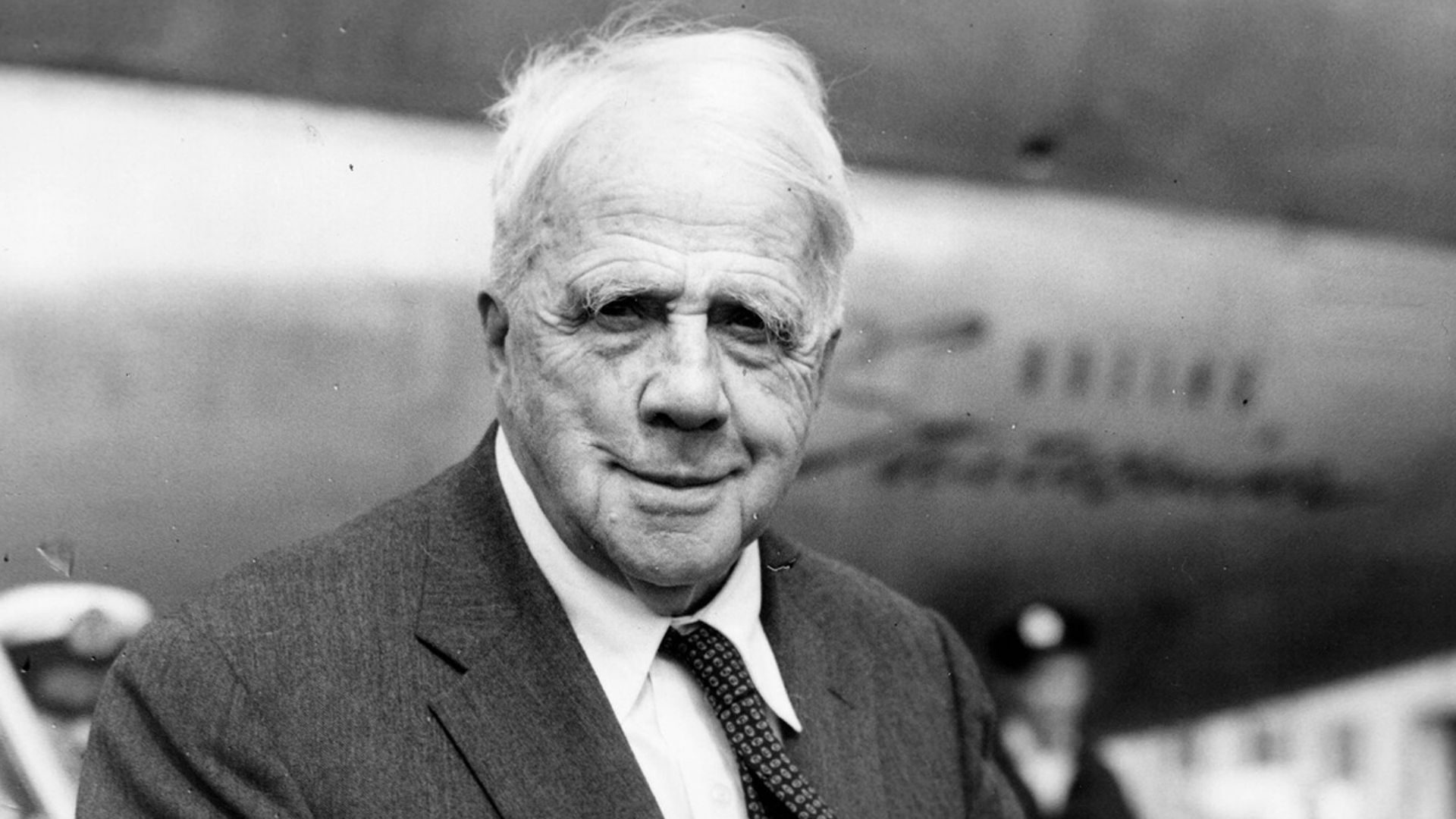Design Poem by Robert Frost
Design
I found a dimpled spider, fat and white,
On a white heal-all, holding up a moth
Like a white piece of rigid satin cloth --
Assorted characters of death and blight
Mixed ready to begin the morning right,
Like the ingredients of a witches' broth --
A snow-drop spider, a flower like a froth,
And dead wings carried like a paper kite.
What had that flower to do with being white,
The wayside blue and innocent heal-all?
What brought the kindred spider to that height,
Then steered the white moth thither in the night?
What but design of darkness to appall?--
If design govern in a thing so small.
Frost’s brilliance emerges in the difference between this final version and its preliminary, In White. A comparison of the two poems is illuminating. In Design he changes the first line to ‘I found a dimpled spider, fat and white.’ ‘Lifeless’ becomes ‘vivid’(L.3) and the fourth line ‘Assorted characters of death and blight.’ ‘Snow-drop’ replaces ‘beady’ in Line 7, and the 8th line now reads ‘And dead wings carried like a paper kite.’ Each substitution is more realistic, convincing and ominous, foreshadowing Design’s conclusion: What brought the kindred spider to that height, Then steered the white moth thither in the night? What but design of darkness to appal? - If design govern in a thing so small.
A most picturesque and beautiful write, of the white spider on the flower with his captive..fabulous! .. :)
Everything I've read by Robert Frost is a diamond. Sometimes beginning with the exposure of a flaw, A self contained, powered, icy, fiery gem emitting light beyond time, beyond any measure like space itself. One cannot find meaning satisfying enough as we do with lesser poets because comprehension alone relegates his poem to the past. One must as well continually marvel forever with the essence like Mozart.. Twinkle, twinkle.
The beauty of Frost is his simplicity. And he did love to appear simple, too. Of course, so much polish and structure and discipline goes into creating that illusion of easiness. And the simplicity of the subjects he chooses, the rural pictures he uses, their apparent smallness ably conceals the actual enormity of what he's saying. Frost was the master of disguise and I'm sure he delighted in that. 'Design' is my favourite of his because I feel it's maybe his most honest piece. It's about the horror that seems to underpin existence, especially if you look too closely. The more you zoom in, the more clearly you see that down to the tiniest pixel, the pattern of casual, random, impersonal cruelty is fixed.
A well-written poem that ponders design, by Robert Frost. Love his rhyme pattern.
Minute observations of the poet and the flight of imagery that helped him to compose such a beautiful poem are simply amazing.
In a thing so small! ! Thanks for sharing this poem with us.
This poem has not been translated into any other language yet.
I would like to translate this poem
Why this poem has an average rating of 7.9 is beyond me. The phrasing is fresh, taut, highly economical, and the associations are surprising ('like a paper kite'/Like the ingredients of a witches' broth', in particular) . The poem has good line breaks, beautiful alliteration, and fluidity of expression. It seems very easy to write, which is a sure hallmark of a master. The poem glitters with diamond-like rhymes. And it happens to be deceptively deep. The reader is carried along by a smooth, hypnotising rhythm, which can lull one into superficial, careless reading. The narrator is uncertain whether what's witnessed is by design - by design of a cruel or malevolent force (as suggested by the 'witches' broth- simile) . But he seems inclined to think it is. There is irony and dark playfulness to boot: 'Mixed ready to begin the morning right'/'...like a paper kite.' There is no caring Creator here: there is only the cruel cycle of eating and being eaten. What I appreciate is Frost's honesty and integrity: he doesn't try to present a rosy picture of God by suggesting THERE IS A HIGHER PURPOSE TO THIS SHIT; WE MUST HAVE FAITH. GOD IS GOOD, even if HE/SHE appears cruel or indifferent. The narrator restricts himself to what is observed, speculates in a playful way, without being led away by pleasant (stale/unoriginal) theories and/or beliefs. He basically admits he isn't sure what really is in the background of our existence, and doesn't try to cover up the uncertainty with rosy affirmations and cliches, after the manner of a coward.